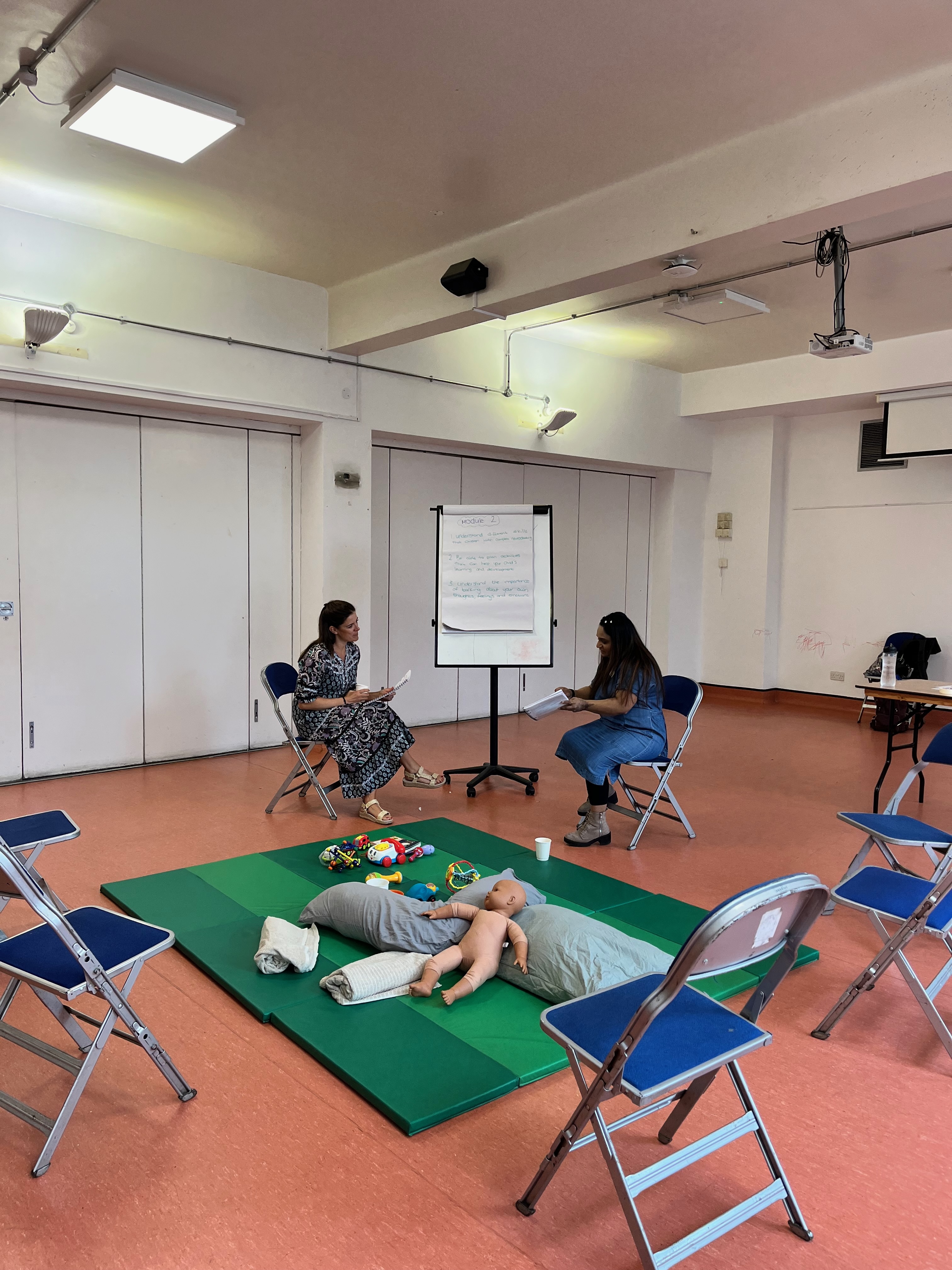Table of Contents
Background:
The “Encompass” programme aims to support families of children and young people with complex neurodisability who have diagnoses like cerebral palsy (CP). CP is the most common childhood physical disability globally. Children with CP and their families have multiple, complex healthcare needs. Research shows that parents/carers of children with CP require a large amount of support and information, particularly just after the diagnosis, however this is often lacking. They also benefit from forming support networks with other caregivers.
We reviewed potential low-cost programmes that support parents/carers of children with CP. The Ubuntu model of care was seen as a potential solution, as parents/carers gain knowledge and skills about caring for their child, while also forming peer support networks.
“Ubuntu (previously: Getting to know Cerebral Palsy)” is a community-based participatory caregiver programme that has been developed and successfully tested in resource limited settings such as Uganda, Ghana and Bangladesh, and has been implemented in low and low- and middle-income countries globally. The group programme is comprehensive in that it aims to promote inclusion and participation for the child with CP in the community, to maximise the child’s health and development, to empower caregivers through information sharing and peer support, to address stigma, and to promote the human rights of children with disabilities.
The groups are co-facilitated by a health professional and an ‘expert parent’ with lived experience.
Various forms of the “Ubuntu” programme have been tested in many low- and middle- income countries, where it was found to improve parents’ and children’s quality of life. It has not yet been adapted and tested in a high-income country, such as the UK.
The Encompass Study therefore aims to co-adapt and pilot test the “Ubuntu” programme in a culturally and ethnically diverse part of the UK in East London.
 The adaptation of “Baby Ubuntu” to form “Encompass” involved partnering with parents with lived experience. Image from Adobe Stock
The adaptation of “Baby Ubuntu” to form “Encompass” involved partnering with parents with lived experience. Image from Adobe Stock
The ‘Encompass 1’ Study:
Initial phases of the Encompass study, funded by Barts Charity (PI: Heys), have already been completed. We refer to this work as the ‘Encompass 1’ study. The phases in this study aimed to:
-
Explore the needs and priorities of those caring for children and young people with complex neurodisability in East London, UK and to identify gaps in service provision. You can read our published paper about this aim here.
-
Assess whether healthcare professionals and parents/ carers would find it feasible and acceptable to implement an adapted “Ubuntu” programme. Results from this aim are in the process of being published.
-
Determine how the programme may be adapted for this setting. Results from this aim are in the process of being published.
Overall, both families and health professionals felt this an acceptable and feasible programme, and recommendations were given for adaptation and implementation. Most participants thought that the programme would have a positive influence on parents/carers and their children, and would provide valuable opportunities for peer support networks to be formed.
 Parents/carers of children with complex neurodisability have reported the value of connecting with others with similar experiences. Image from Adobe Stock
Parents/carers of children with complex neurodisability have reported the value of connecting with others with similar experiences. Image from Adobe Stock
The ‘Encompass 2’ Study:
The ‘Encompass 2’ study involves the actual adaptation of “Baby Ubuntu” (this is the “Ubuntu” programme for younger children) to form the “Encompass” programme. This has been completed with the support of a wider adaptation team using the ADAPT guidance by Moore et al. as a framework. ‘Encompass 2’ also includes a pilot and feasibility study conducted in two sites in East London, UK. This work is being completed as part of Kirsten Prest’s PhD, funded by HARP. Aims for these pieces of work can be seen below:
Research aims:
Long-term aim:
The overarching aim of the co-adapted “Encompass” programme is to improve the knowledge, skills and confidence of parents/carers of children with complex neurodisability. To provide opportunities for peer support, empower parents/carers in navigating community health systems, and to improve the wellbeing and quality of life of the parents/carers and their children.
To co-adapt the “Baby Ubuntu” programme:
The first aim of the ‘Encompass- 2’ study is to co-adapt the “Baby Ubuntu” programme for use in two diverse, urban London boroughs; Newham and Tower Hamlets. The co-adaptation phase will be completed alongside parents/carers with lived experience, health professionals and researchers with knowledge of the local context and of “Baby Ubuntu”.
To test whether it can be delivered in a UK context:
The second aim of the study is to test whether it is feasible and acceptable to carry out the co-adapted “Encompass” programme with groups of families in Newham and Tower Hamlets, East London. This will help us to know if it is worth continuing the work with a larger study across multiple sites that could assess the impact and cost-effectiveness of the programme.
 The adaptation and testing of “Encompass” is taking place in two areas of East London in the UK. Image of two Encompass facilitators
The adaptation and testing of “Encompass” is taking place in two areas of East London in the UK. Image of two Encompass facilitators
